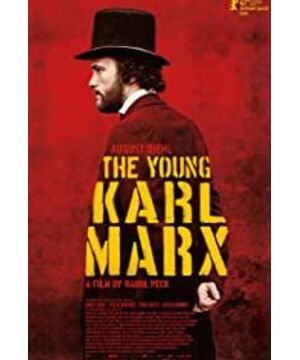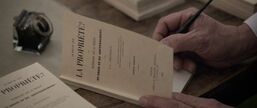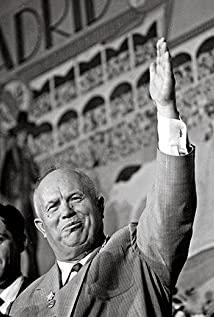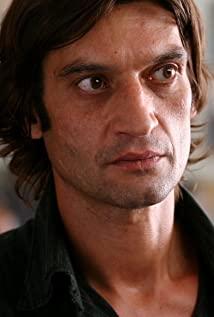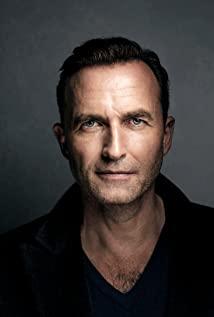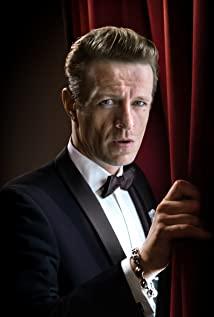I have to admit that, due to the lack of relevant knowledge reserves, when I first watched the film, I felt confused about the ideological struggles of the characters in the film, the mavericks of Marx and Engels, and Marx’s ideas in different periods. Impressions are the vivid shaping of Marx's characters, and after consulting relevant documents to understand the background of the times and changes in Marx's ideas, you will feel more immersed in the film, and you will be able to better grasp the ideological confrontation and time context presented in the film. Although the title of the film is "Young Marx", the image of Engels is also strongly portrayed in the film, which is reflected in the introduction to the whole at the beginning: at the beginning of 1843, institutional and economic crises followed, and the autocratic monarchy ruling the European continent was in jeopardy. There is starvation and change is imminent. In Britain at the time, the Industrial Revolution upended the world order and spawned a new class: the proletariat. Unions are all over the place, and they espouse a communist society in which everyone is like brothers. Two young Germans upend the utopian fantasy of this society, changing their goals and the future of the world. There is no doubt that these two people are Marx and Engels. They have changed the future of the world. When talking about Marx in youth, Engels is indispensable. The two of them can complement each other in terms of character and knowledge. The friendship highlights the image of Marx.
At Luger's house, Engels considered Marx a genius: "Especially the Critique of Hegel's Philosophy, I have never read such an accurate and fascinating article, you have revolutionized Hegel's dialectics, you are the greatest of the present day The materialist thinker." And the always arrogant Marx also praised: "That study on the British proletariat, IMHO, is really a great work, no one has done it before you, one word to describe, unparalleled, you are right The poorest people and the rich know everything like the back of their hands." The two young men admired each other because of the text, and then Engels became the first guest of the Marx family. Ambition, they knew because of each other, and they were the perfect pairing for each other. Engels had excellent skills and economic knowledge, and could accurately spot the problems in Marx's articles. He considered his criticism of religion and idealism to be authoritative, but it is best to read Bentham et al.'s books on English economics. Therefore, there is a scene where Marx reads economics works in the library in the film "The amount of value that forms a commodity is determined by the socially necessary labor time; labor is the primary productive force, and labor can pay for all goods..." In fact, it was precisely the establishment of Marx's position on the "labor theory of value" in political economy, and the "labor theory of value" that enabled Marx to discover the "unfairness" in capitalist production relations. Profit as understood by these capitalists is naked exploitation. The film also made a lot of descriptions of Marx's daily life, love with Jenny, financial embarrassment, deportation, rejection of finding a job... All of these make the image of Marx no longer flattened, making people feel that Marx is not just an activist who learns to be rich and talented. The image of boring and rigid, worshipped as a communist god has been overthrown, and the image of freshness and flexibility has been deepened. Many small details can catch the eye and refresh the concept. For example, when Marx bought cigars in Paris, he bought the cheapest cigars, and he also bargained for a cigar of three Sols to two of five Sols. This detail is full of life and reflects Marx’s material poverty, which makes people look at it. to its mundane side. Shortly before the Communist Manifesto was written, Marx made it clear that he was tired, when Engels persuaded "Karl, the people have begun to riot, the price of bread has begun to rise, half a million people have starved to death in Ireland, and the unemployment rate is In growth, both Austria and France are on the brink of crisis, Poland is ready, we must always be ready to win the war, stand up, God wake up,” and even more bluntly said that he was almost 30 years old. I have no money, no energy, I just want to write a book, I want to take a breath, I have had enough of those leaflets and manuals. This may be very inconsistent with the public's inherent view of Marx, but this is a real man of flesh and blood. But it is precisely because of this that they have become great. There are problems that ordinary people have to face, but they insist on caring about the suffering of the people, and they use the pen as a weapon to explore the truth. And the extraordinary life that changes the world, the shaping of the ordinary and the extraordinary complements and complements each other, and such an image is more real and thorough. Just like in order not to let the previous efforts, written books, articles and speeches go to waste, Marx finally set out to write an easy-to-understand book, especially for workers who have no time to study. The real Communist Manifesto is being written. Marx is profound in thought, sharp in writing, and sharp in his writing. He is brave, willing and good at challenging authority. This is concentrated in the "Communist Manifesto", "In order to win over the people, the nobles waved the begging bags of the proletariat as flags. But whenever the people followed them, they found their hips with old Feudal coat of arms, so they laughed and dispersed”, “This kind of German socialism, which used to take its own set of clumsy schoolboy assignments seriously and brag about it, is now gradually losing its self-confidence. dazzling and erudite innocence", "German socialists clothed their shriveled "eternal truths" with a flower woven from speculative spider silk, embroidered with ornate rhetoric and soaked with sweetness. And the film also shows its personality of challenging authority in many places. The film cites Marx's "Debate on the Law of Forest Theft", cutting down a green tree means using violence to cut off its organic connection, picking up a dead tree is the opposite, it will not be separated from the ownership, and separation means that it is occupied by others. Despite the essential difference, both acts are called theft, and both are punished as theft. Montesquieu said: There are two kinds of corruption, one is that the people do not obey the law, and the other is that the law itself is the corruption of the people. And the latter malady is incurable, because the medicine itself contains this malady. Marx openly defended the interests of the poor and criticized: "You blur the distinction between theft and gathering. If you think you have taken it for yourself, you are wrong. Punishment is visible, but crime is invisible, because you see Where the punishment is, the crime is not seen, you are afraid, and hatred will grow.” He believes that the laws of the hierarchical state serve the interests of the exploiting class, and the hierarchical state is a tool for the big proprietors to rule and plunder the people. In April 1943, when he was in the newspaper office in Cologne, Marx told his colleagues Powell and others that there were only two situations that would satisfy him. One was that his article had a response, and the other was that everyone could finally face the Prussian tyrant. He is not afraid of being closed down, not afraid of newspapers being destroyed, and not afraid of being deleted. Marx thought that the articles of his colleagues were a bunch of nonsense about the world revolution, without any ideas or programs. They always thought about how to speak in a pretentious and euphemistic manner. They always wrote ambiguous literary criticism, ambiguous generalizations, and ambiguous political , and Marx did not want to make some insinuations, he had had enough of obscurity, did not want to endure hypocritical, stupid, cruel authority, and then calmly accepted arrest. Instead of debating about property, ownership, theft, in a speech in Paris in July 1844, Proudhon referred to the producers of social wealth, focusing mainly on artisans, tailors, shoemakers, etc., until an audience shouted Are the industrial workers not "producers of social wealth", Proudhon says, "so are they". From the very beginning, Proudhon reduced the wealth production of the whole society to small handicrafts, but used this to criticize the entire huge capitalist industrial production system. Proudhon described "property" as an innate natural power, and interpreting theft as injury to a strange property owner, Marx retorted in combination with his speech: "As you say, property and ownership are the same, you Saying that ownership is a form of stealing, then if I stole his finances from someone, I'm actually stealing plagiarism? "The Proudhon at that time was called a master and an authority for the proletariat, but Marx believed that there were two Proudhons: the critical Proudhon who thinks in the abstract and the real Proudhon who sees the suffering of time, who is only for the second Proudhon. Defense. Marx did not deny that Proudhon was a great man, but not a great economist, and he was guilty of arguing that Proudhon's reformists wanted to reform a system that would naturally lead to poverty, not to completely reform it Biggest mistake. The hallmark of communism is not the abolition of property in general, but the property of the bourgeoisie. In 1846 at a meeting of the League of Justice in London, Marx was considered to have insulted one of the most respected persons in the whole movement character and slandered Weitling, the warrior leader at the time. Weitling was proud and complacent because of his large number of supporters. He felt that the support of 100,000 armed proletarian elements and 40,000 anti-government personnel was enough to end the tyranny of the bourgeoisie. Marx believed that it was just a false and arrogant game played by a demagogic prophet and a voiceless fool, without any constructive program, and there was no practical and reliable way. Weitling’s theory is supported by the future revolution. Marx believed that Weitling was ignorant, and Weitling called Marx dogmatism. Although Marx was an arrogant bastard at the time, history proved that Marx was right. In November 1847, at the League of the Righteous Congress at the Red Lion Hotel in London, the gentle and restrained Engels also showed his style, his speech went straight to the point of the League of Justice: "fraternity and friendliness may be present for all , I will shed tears when I hear these words, but tears are useless at all, strength is not accumulated by tears, the bourgeoisie will never show favor to us, and we should not try to win their sympathy”, “Everyone is brother? What about the bourgeoisie and the workers, are they also brothers? No, they are the enemy. "But there are still people shouting Long live Waitling, Long live Proudhon and then Engels points out that what they are crying for is nothing but illusory things, and reduces the struggle to the most fundamental point: the antagonism of the proletariat and the bourgeoisie will lead to the outbreak of the revolution. Like What George Sand said was fight or death. Fight bloody or perish. At this time, most of the workers present came to their senses, and the slogan became "Long live George Sand, long live Marx". Only then did communism become known to workers: industry The revolution has created a new class of slaves, and the proletariat is this class of slaves. If we can liberate ourselves, we can liberate all mankind. This liberation has a name, communism. As later "Communist" The Communist Manifesto states: "Modern industry has transformed the small workshops of paternalistic masters into large factories of industrial capitalists. The masses of workers huddled in the factories are organized like soldiers. They are ordinary soldiers of the industrial army. They are not only slaves of the bourgeoisie, of the bourgeois state, they are under the supervision of the sergeants and officers of all ranks, they are subject to the machinery, the supervision of the workers, and above all the bourgeoisie who runs the factories, every day and every hour. Slavery. The more openly this despotism declares profit as its ultimate goal, the more despicable, hateful, and abhorrent it becomes.” The fragile fantasy that the League of the Righteous is the New Jerusalem disintegrates, and the proletariat begins to abandon its illusions, In order to clear the reality, the Justice League has since changed its name to the Communist League. The European Revolution of 1848 broke out a month later. It affected all classes in Western Europe. It was in this revolution that the old forms of governance were facing collapse. It was in this revolution that the International Labour Movement was born. It was later translated and disseminated around the world, and is still reprinted today. When Marxism became the authority of the proletarian working-class movement, it was recalled that Weitling said that "criticism devours everything, when nothing else can be devoured, he can only devour itself", and when the authority of criticism becomes authority , and what to criticize? Criticize yourself? Perhaps more important than criticism is the process of constantly pursuing truth, advancing with the times to refute and deny ideas or words and deeds that are considered wrong, and constantly testing and developing truth in criticism and practice is the theme of Marxist critical thought. At the end of the film, there are various pictures of resistance movements for equality, freedom and democracy in the history of the nineteenth century to the present society: the May storm of 1968, the black affirmative movement, the Che Guevara incident, the Soviet-American Cold War... .. These are all related to Marxism and the socialist countries and labor movements established under its influence, making people feel the wide spread and influence of Marxism. It is true that this film does not fully show the real life of the proletariat in the nineteenth century and expose the exploitative nature of the bourgeoisie. The lack of struggle makes it difficult for viewers to understand the thinking of Marx and Engels, but considering the limited time and other reasons, this film is The film can be regarded as an excellent introduction to understanding Marx. These are all related to Marxism and the socialist countries and labor movements established under its influence, making people feel the wide spread and influence of Marxism. It is true that this film does not fully show the real life of the proletariat in the nineteenth century and expose the exploitative nature of the bourgeoisie. The lack of struggle makes it difficult for viewers to understand the thinking of Marx and Engels, but considering the limited time and other reasons, this film is The film can be regarded as an excellent introduction to understanding Marx.
View more about The Young Karl Marx reviews


